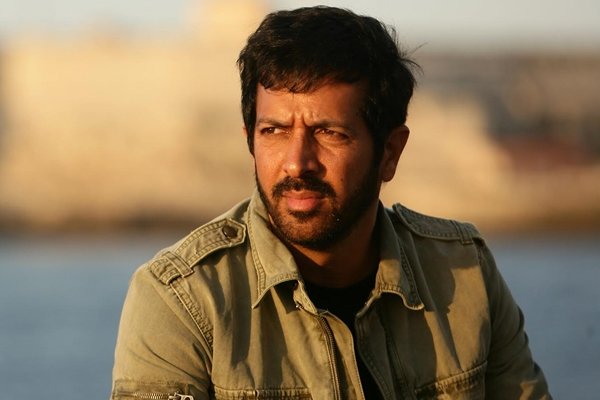Phantom Haunts Pakistan: Shoes Thrown At Filmmaker Khan

NEW DELHI: Indian filmmaker Kabir Khan, who was in Karachi to attend a marketing seminar, faced angry protesters at the Pakistan city’s airport on his departure on Wednesday. Protesters threw shoes and shouted ‘shame’, whilst chanting anti-India and pro-Pakistan slogans. Khan remained calm through the visibly charged scenario.
The protesters drew attention to Khan’s film, Phantom -- which is set in the context of the November 26 Mumbai attacks and is based on the novel ‘Mumbai Avengers’ by S. Hussain Zaidi. "You people send Jhadav and kill hundreds here, why don't you make a movie about it?" a protester asked the Phantom director (as quoted by Dawn).
Another shoe-wielding protester reportedly chased Khan to the departure lounge, asking the director about "Indian conspiracies against Pakistan army".
The film, starring Saif Ali Khan and Katrina Kaif, is set five years after the tragic Mumbai attacks, and follows the story of a retired army officer who leads a mission to seek out and kill the mastermind of the attack, including Jamaat-ud-Dawa (JuD) chief Hafiz Saeed.
The film was banned in Pakistan after Hafiz Saeed moved the Lahore High Court. Saeed maintained that the film posed a threat to his life and was Indian “propaganda” to hurt his and Pakistan’s image. “It is absurd to say that (Saeed) is linked to the attacks in Mumbai,” said lawyer A.K. Dogar at the time. “We hope the government will take steps to implement the court order.”
Saeed, founder of terrorist organization Lashkar-e-Tayyaba and current leader of ‘independent Pakistani organization’ Jama’at-ud-Da’wah, enjoys impunity in Pakistan despite India having raised several objections. Earlier this year, after the brutal Pathankot terror attacks, Hafiz Saeed issued a statement warning India of more attacks.
India’s Ministry of External Affairs issued a statement in response. “Hafiz Saeed is an internationally designated terrorist; it is for Pakistan to put a stop to his activities,” the ministry of external affairs said. “It should be a matter of great concern to everyone that people like Hafiz Saeed continue to enjoy freedom to indulge in their activities.”
Nonetheless, Saeed continues to remain a powerful -- and most importantly, free -- figure in Pakistan, who, judging by the protests at the Karachi airport, continues to enjoy public support.
In addition to the portrayal of Saeed, actor Saif Ali Khan's subsequent statement, saying that he has "lost faith in Pakistan", caused an uproar in Pakistan. After the film was banned in Pakistan, Khan gave an interview to a newspaper in India, saying, “I don't have faith in Pakistan, generally. Neither do I understand what their thought processes are. I have no problems against Pakistan and I won't make a film that's against the country. But now they have banned the film. We have always shared a very complicated relationship. If you tell uncomfortable truths, films gets banned. We keep banning each other's films.” The statement was in response to the question, “You had said you had faith in the Pakistan Censor Board. Does the Phantom ban surprise you?”
Saif Ali Khan also faced the Pakistani public’s wrath for a dialogue in the film, namely, 'Ghar me Ghuss Ke Marenge'.
In stark contrast, Kabir Khan’s earlier film, Bajrangi Bhaijaan, received rave reviews in Pakistan. The film tells the story of man with a magnanimous spirit, who tries to take a young mute Pakistani girl back to her homeland to reunite her with her family. Social media commentators from Pakistan highlighted the themes of humanity common to both countries, as the movie ran to packed audiences in Pakistani cinemas.
Despite the controversy surrounding Phantom, director Kabir Khan, during the MARCON 2016 seminar in Karachi, said he was a firm believer in the secular fabric of India and in the friendship between India and Pakistan, which led to the making of Bajrangi Bhaijaan. Phantom, the director said, was being misrepresented as it wasn’t meant as a criticism of an entire country, but elements of extremism that “are everywhere.”



